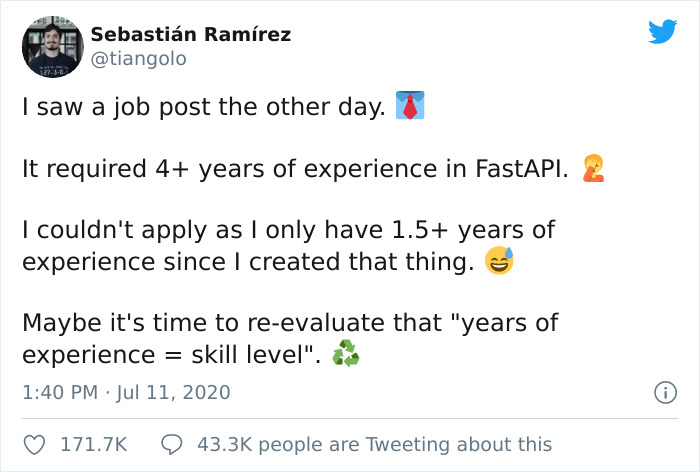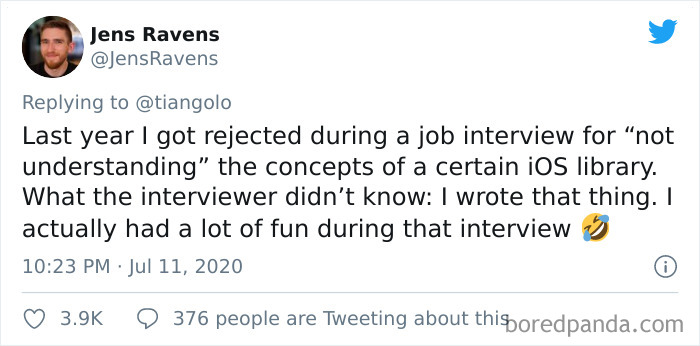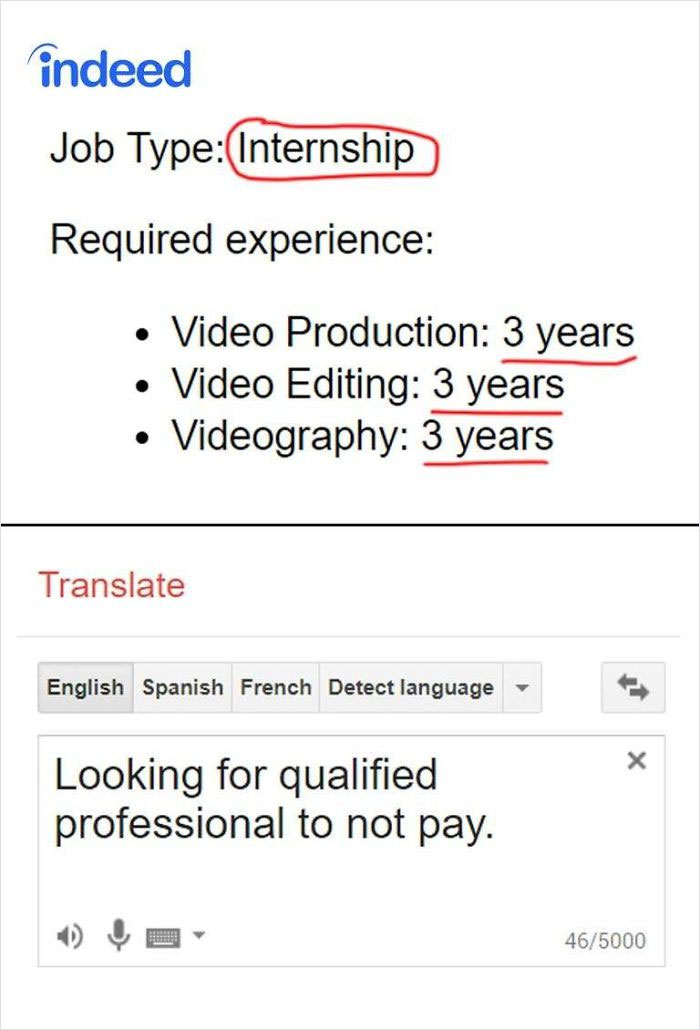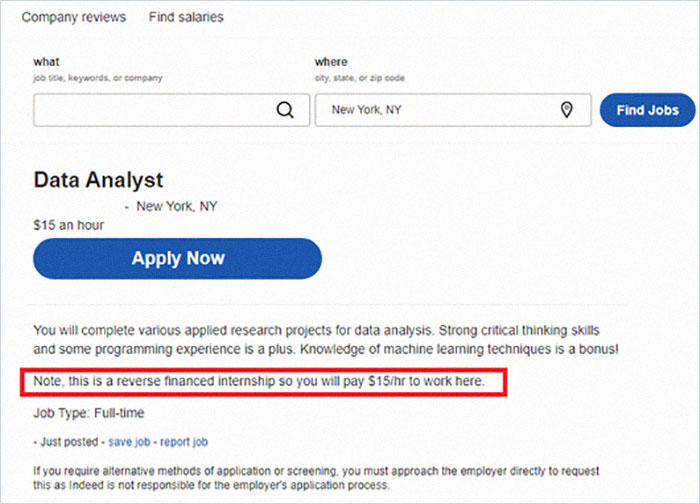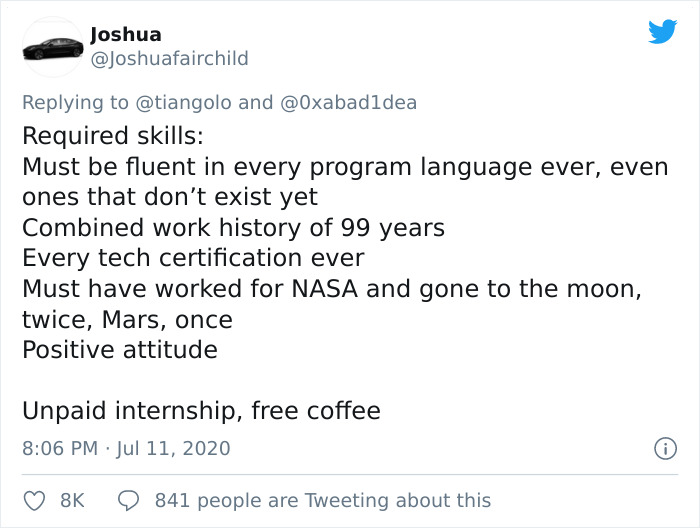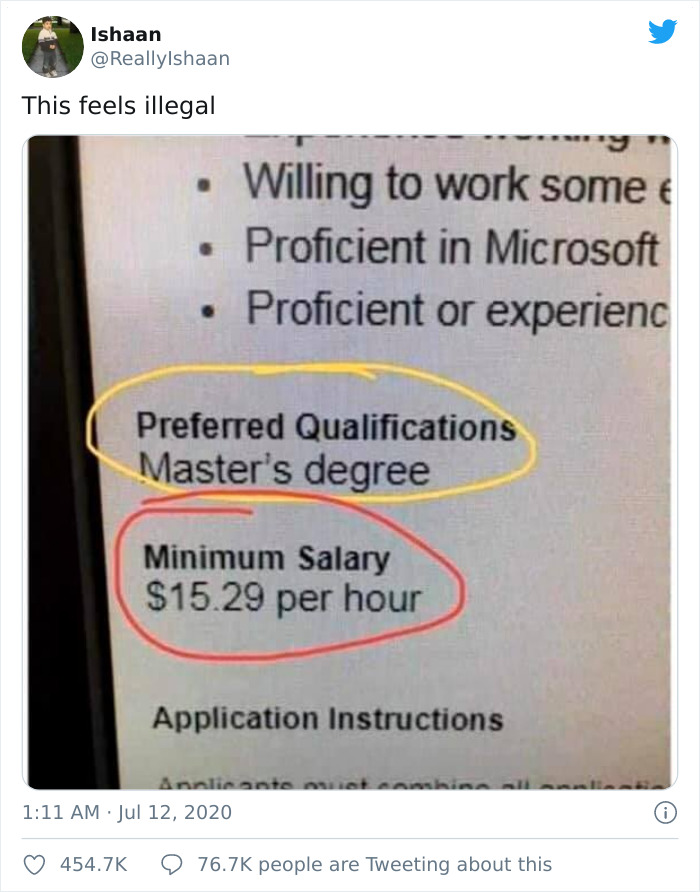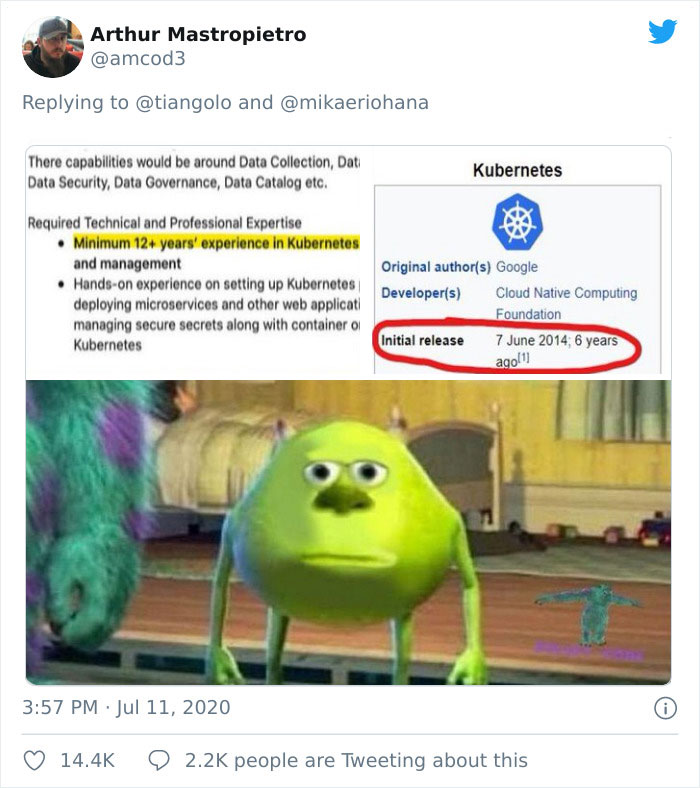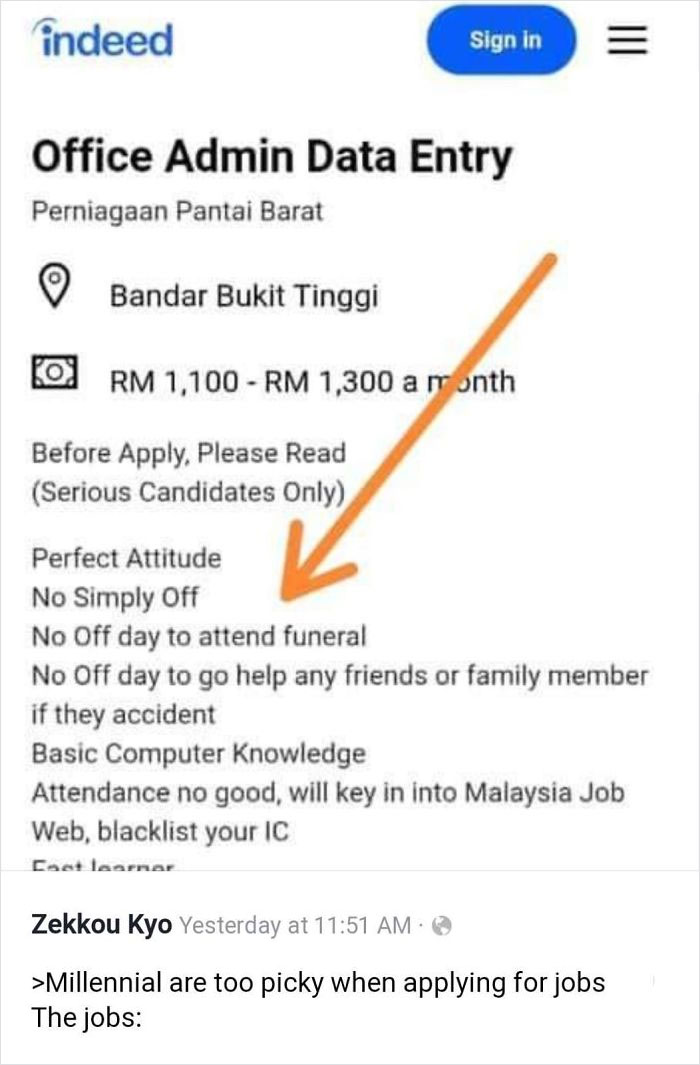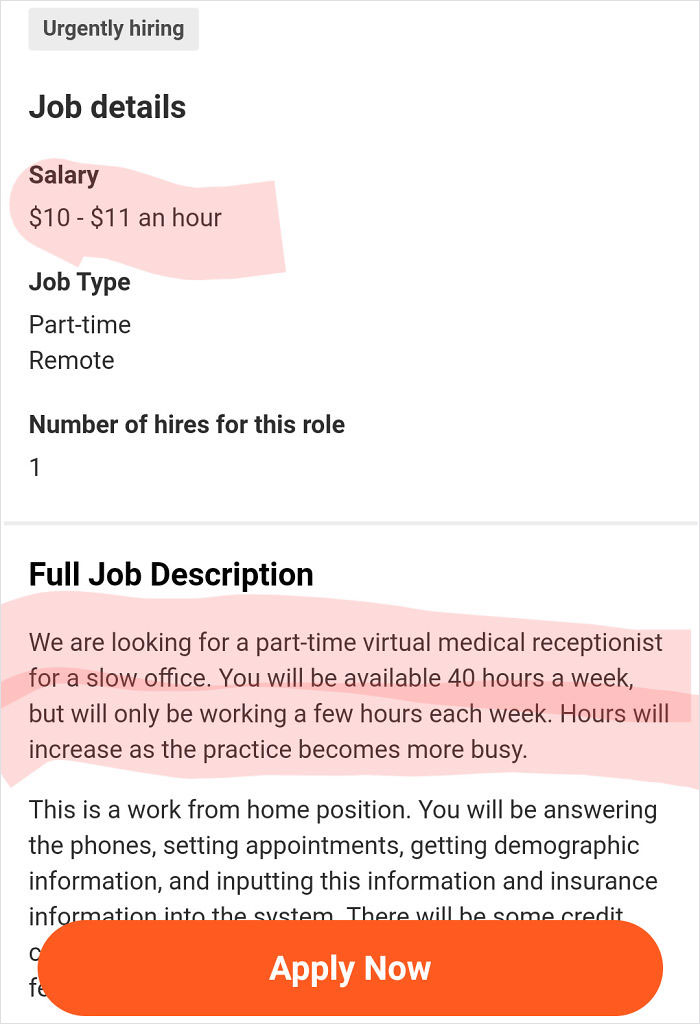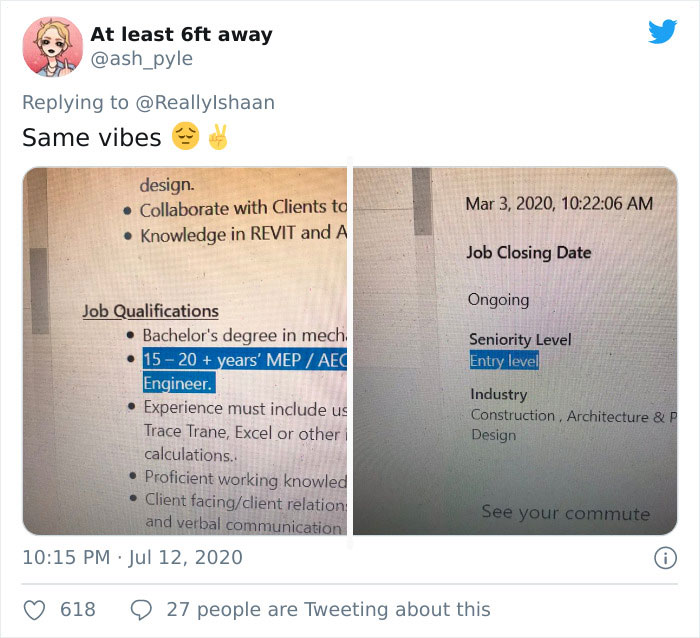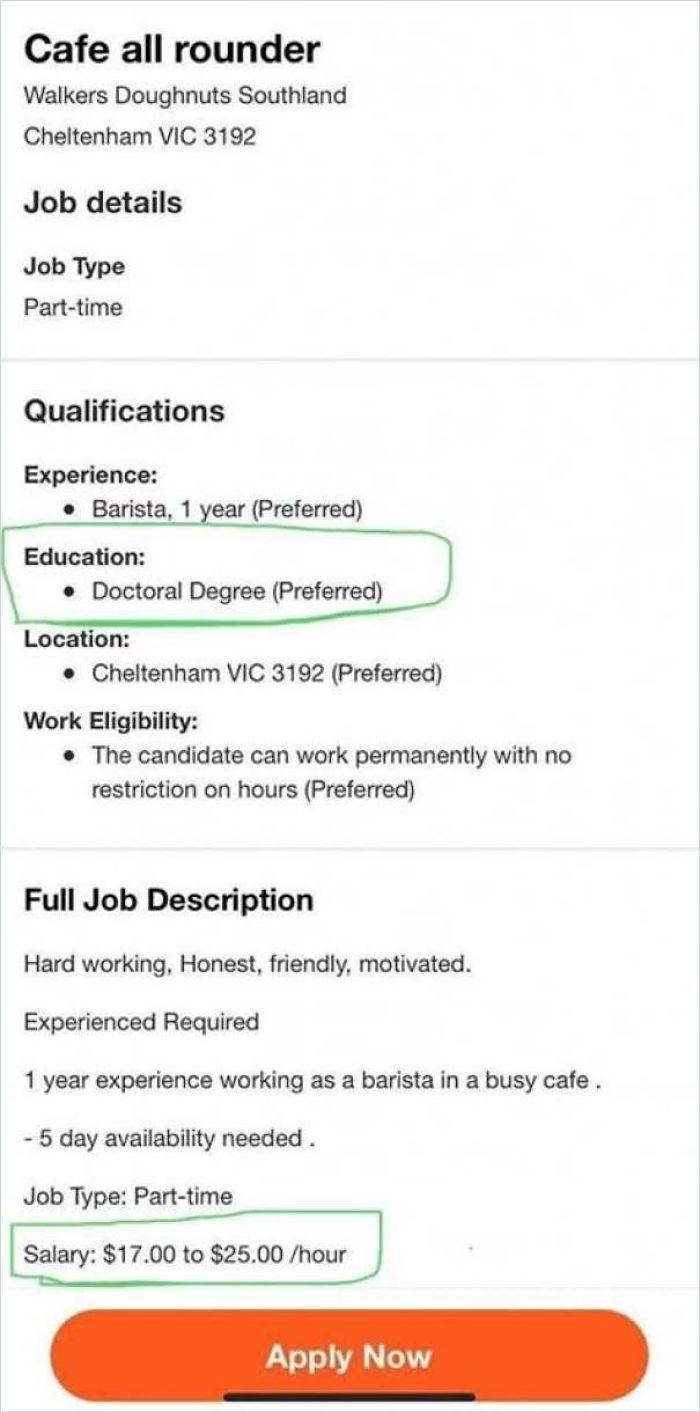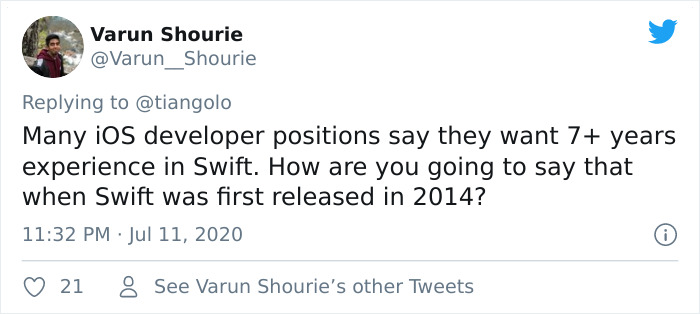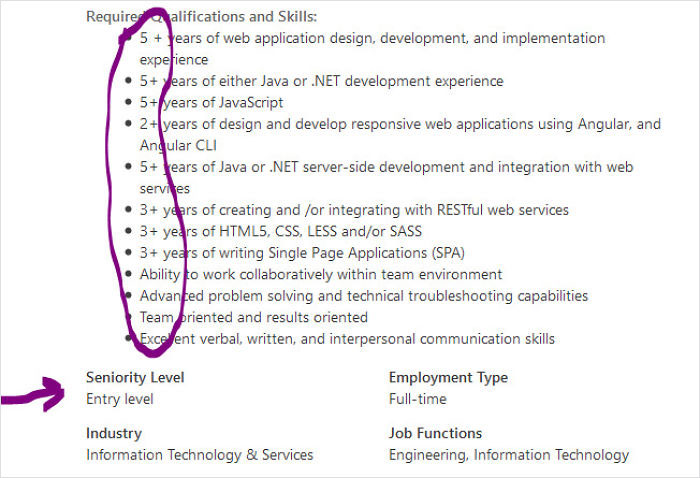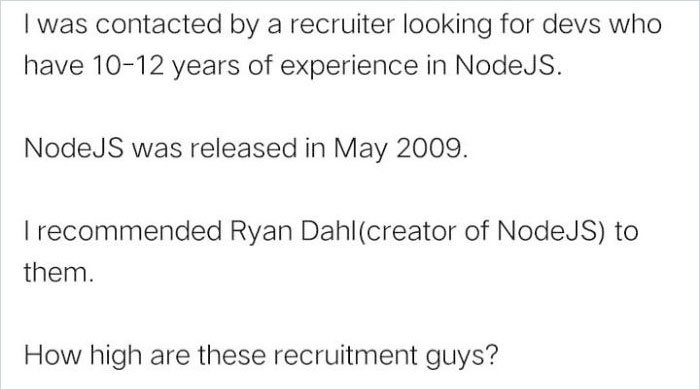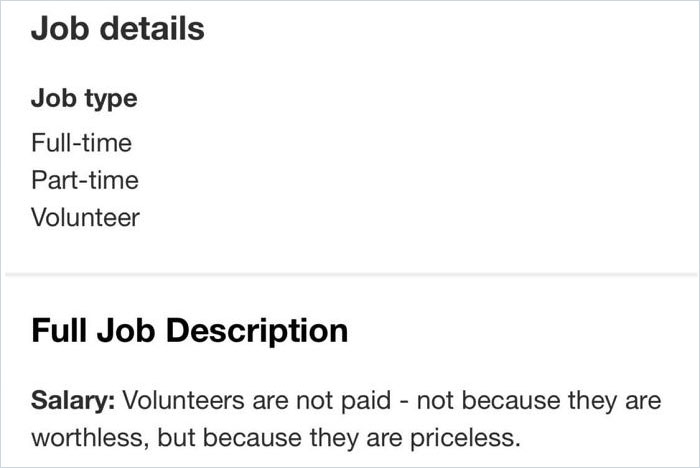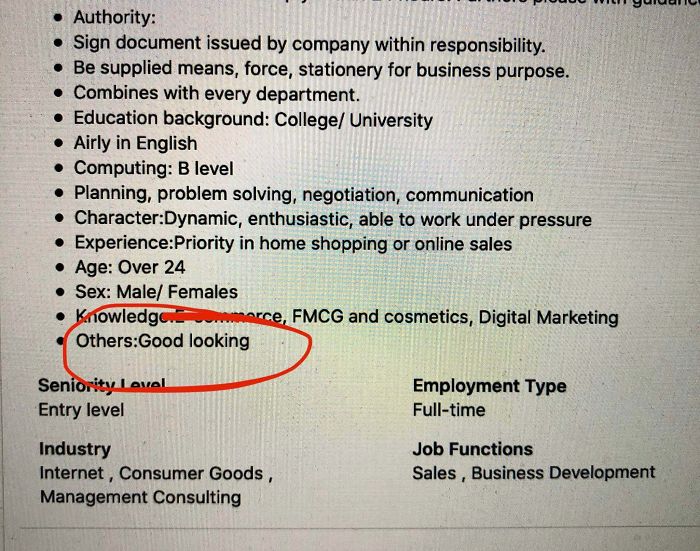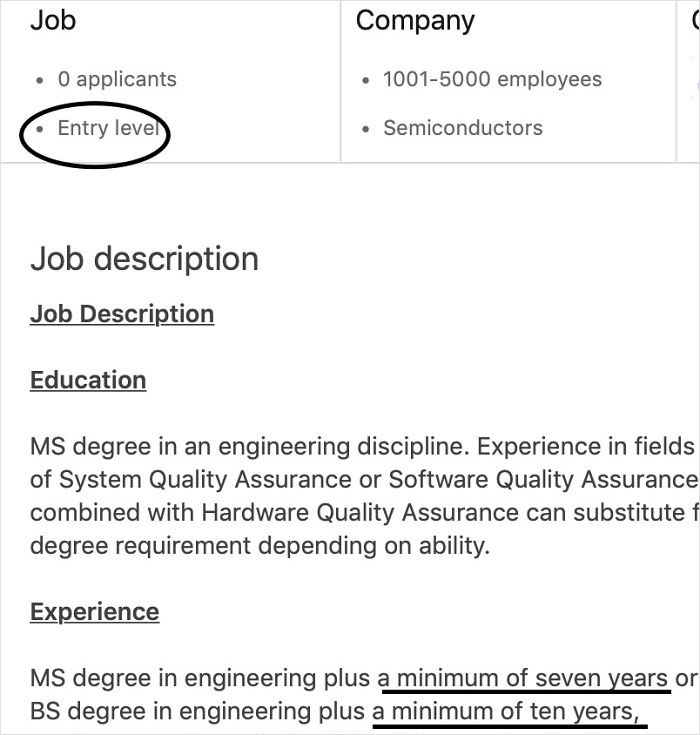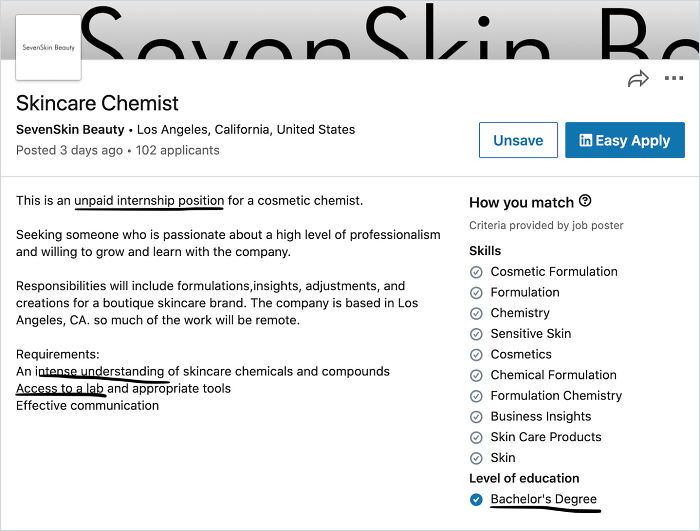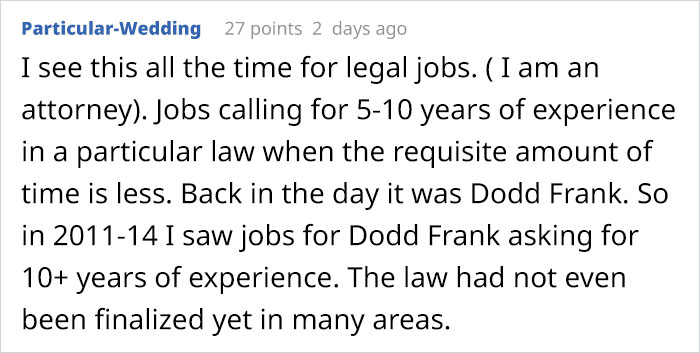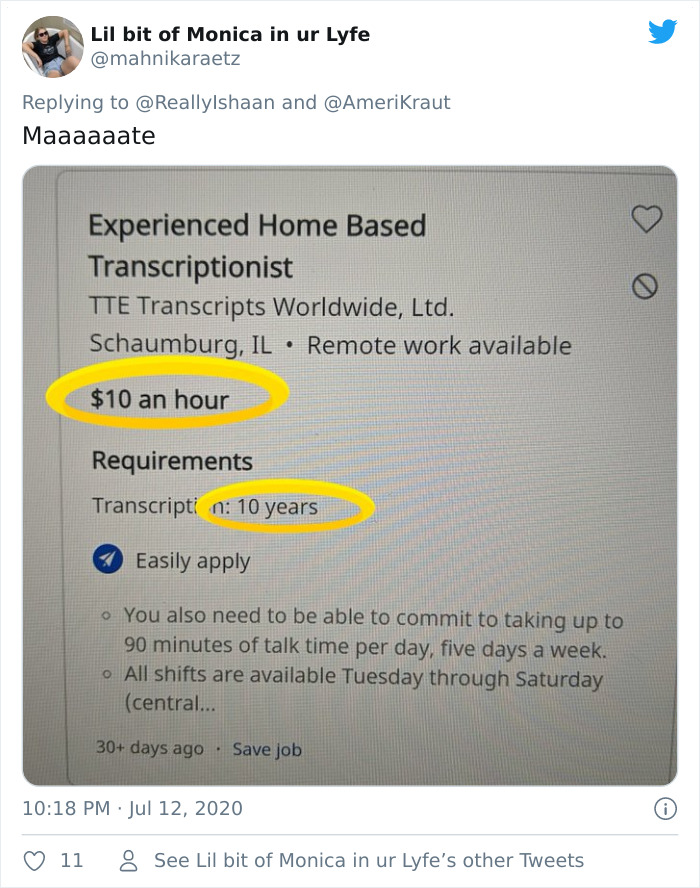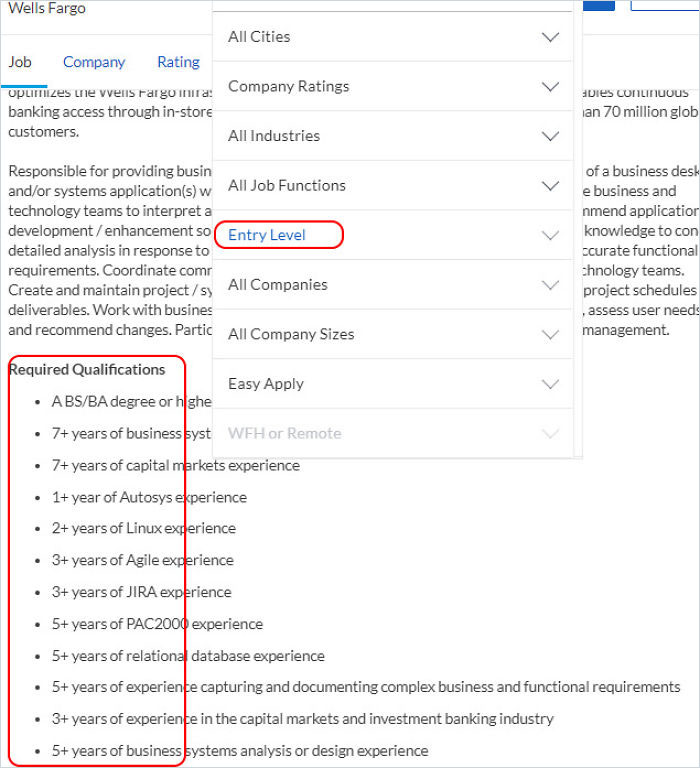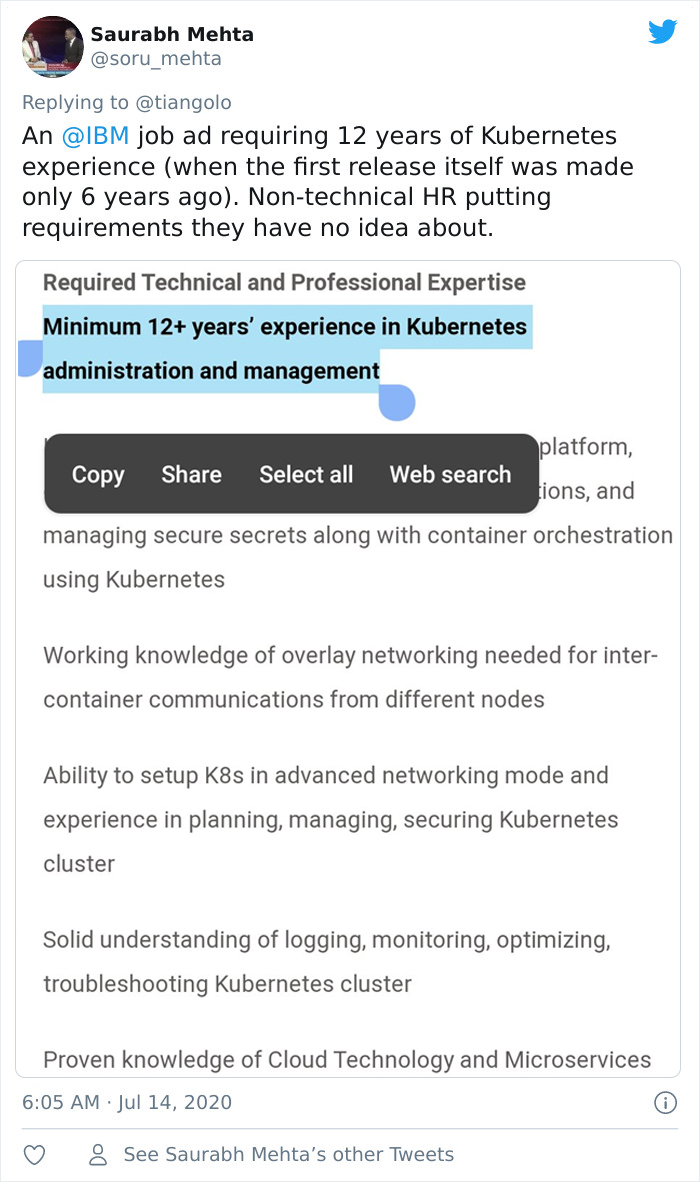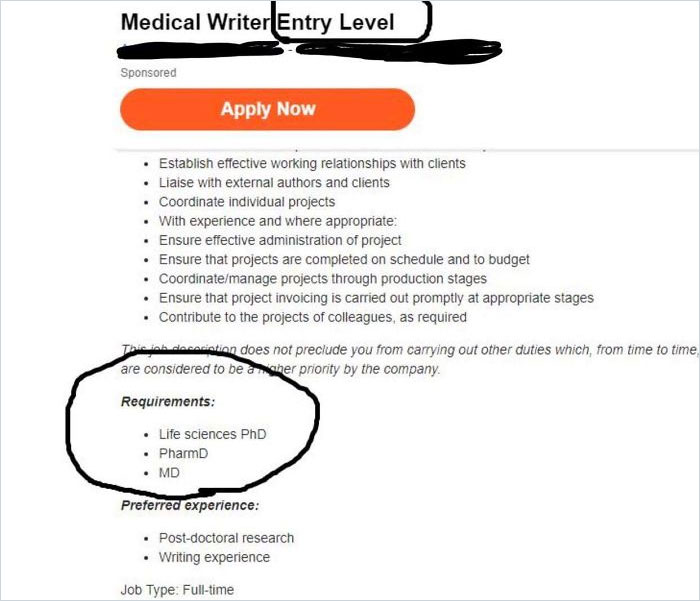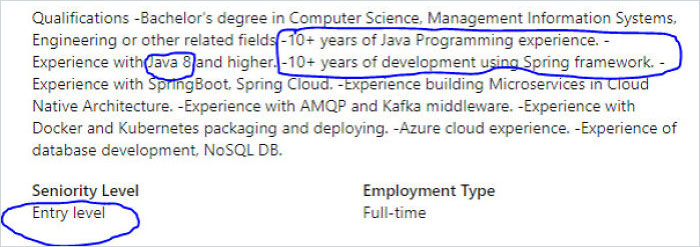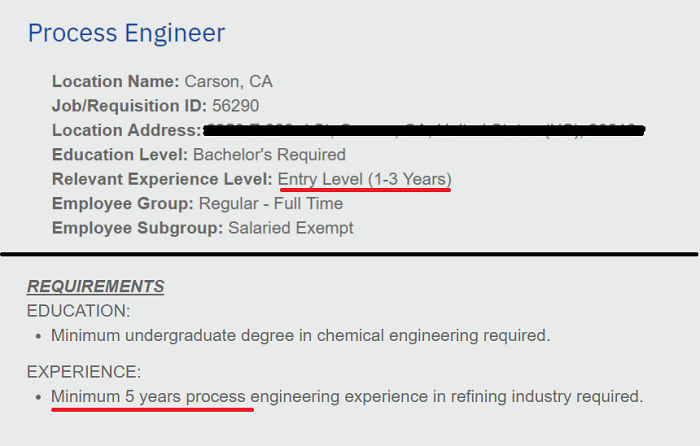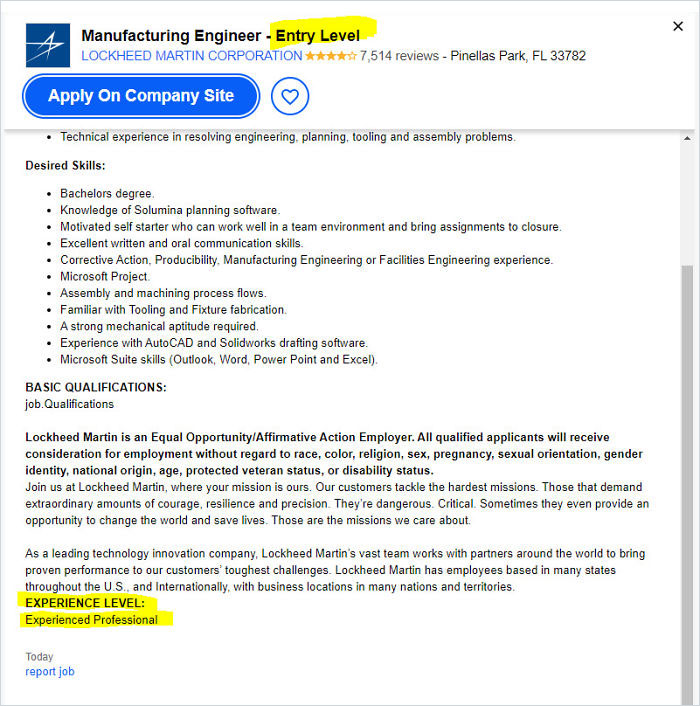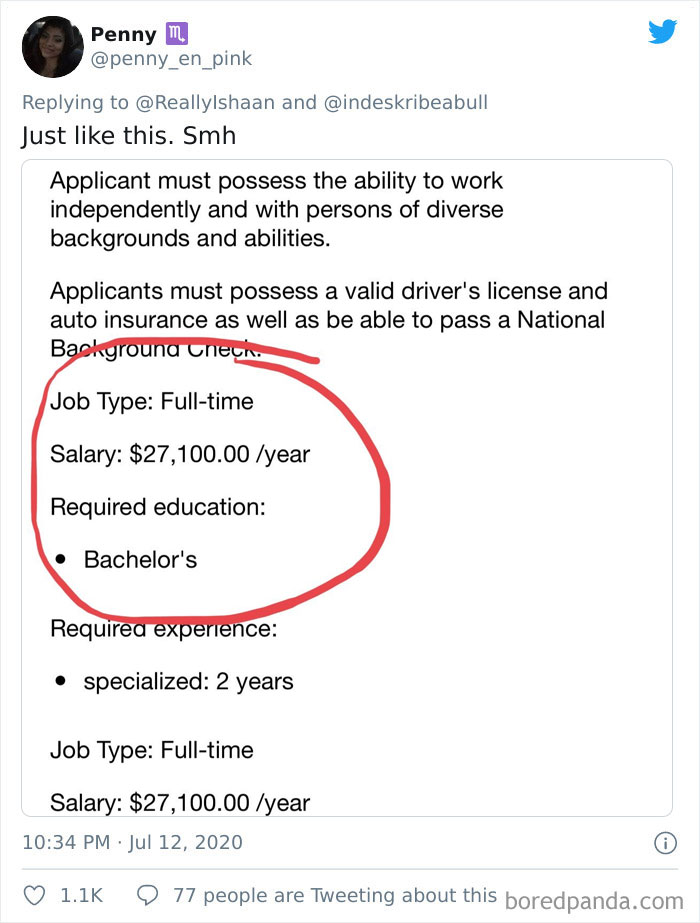
28 Examples Of Hilariously Unrealistic Expectations When Applying For A Job
Interview With AuthorFar from every interview is a success and a lot of us have some nightmare stories to tell. But the nightmare usually starts with the first filter—actually qualifying for the job which can have high demands and low rewards. Sometimes, it can seem like even waiting tables and brewing coffee requires a Bachelor’s or a Master’s degree (talk about inflation, right?).
One of the people who posted about unrealistic expectations is Sebastián Ramírez, who created FastAPI 1.5 years ago. According to him, the job post requires 4+ years of experience in FastAPI and even he, the founder, couldn’t apply for the job. Which brings us to the main question: why do companies do this?
Inspired by Sebastián's post, we've collected examples of some of the most unrealistic criteria that recruiters have had while hiring professionals for job positions, so scroll down and upvote the ones that left an impression on you. We also know that this is something that a lot of you Pandas can relate to, so be sure to share your own job-hunting experiences in the comments. Read on for Bored Panda’s in-depth interview with Sebastián about companies setting unrealistic standards for potential employees.
This post may include affiliate links.
Does this company understand what an internship is coz I think not.
At this moment this is the last item on the list and it for sure is the worst. I still hope it's only a joke.
“I understand recruiters need to try and get the best candidates for their organizations, that's what they are trying to achieve. But they don't have a way to know beforehand who will be good at a certain job and who won't. So they have to resort to some type of proxy for that information,” Sebastián went into detail why some recruiters have very high and sometimes unrealistic expectations for potential employees.
“And probably for legacy reasons and status quo, the main proxies for that information have been a degree and ‘years of experience.’ It's simple and easy to measure, years of experience is just a number, and a degree is a specific name (or set of names).”
Sebastián then explained what the negative side effects of this type of thinking can be. “Those indicators don't really measure someone's ability to perform some tasks,” he said.
“A degree (or set of degrees) in many cases indicates that someone went to a specific physical location periodically for a long period of time, studying certain related subjects, reading and studying about those subjects, and finding a way to pass many, many exams. Those degrees for sure indicate perseverance doing that for years. And although it means that someone had available several ways to acquire some knowledge and skills, it doesn't necessarily mean that person was able to get them.”
He continued: “And then, the exams try to measure someone's ability to do something but are still a heavily simplified way to measure it, another proxy. And in cases, those passed exams to get a degree were measuring skills that might not necessarily be perfectly related to the ones the recruiter cares about.”
You have to be available 40 hours a week but you'll only get at maximum $100 a week. So no second job but $10 dollars an hour? You needed a degree too
According to Sebastián, its “highly admirable” when people are capable of learning a lot of skill sand studying a lot for a long time. “That is probably the actual objective of someone getting a degree. But the degree itself is not the only way to prove that someone did that. And in cases, it might not even be the best way to prove that,” he said.
“At the same time, someone else might acquire the needed skills for the required tasks, but not necessarily through the established ways to get a degree. This becomes even more evident in industries like technology, that move faster than what a rigid education system can always follow,” Sebastián told us.
“On the other hand, years of experience is another proxy that assumes that every person will find the same obstacles (or at least the same amount or type of obstacles) as any other person, learning the same ideas, developing the same skills. But the problem is that one person might keep doing the same thing for a long period of time, accumulating "years of experience" but not actually acquiring new skills. And at the same time, someone could quickly learn new technologies that allow them to perform different tasks more easily, learn how to perform many different tasks, or handle some complex problems and learn how to overcome some difficult obstacles, acquiring a lot of actual ‘experience’ and skills in a very short period of time.”
These must be the most amazing donuts in the world
Damn. I only have a Masters. That doghnut serving process will be too complex for me.
Duuh, if you're really good at swift, you work so swiftly that you get several years experience every year.
Looking for a job can feel like you’re in the Stone Age, hunting for an elusive, quick-footed, and surprisingly picky gazelle that will only let you catch it if you have the right, overinflated qualifications. You’re famished but the gazelle keeps taunting you: “No Master’s degree? No dinner!”
Replace the gazelle with recruiters who have unrealistic criteria while hiring professionals and you’re back in the 21st century, struggling to find a job during the (pardon my French) crapfest that is 2020.
We get it, recruiters want to find the ‘perfect’ candidate to fill each and every job opening. However, impractical expectations about the job market can do more harm than good: the person who can do the job well and with passion can also be someone who doesn’t qualify because their job experience is ‘insufficient.’ Or ‘wrong.’
"Must be able to use everything that was ever invented, for minimum wage".
Prior to an interview, I had to go through a list of words and pick ones that I felt described me. It was really vague and, honestly, there couldn't have been a wrong answer. Yet, I was rejected solely on my answers. I'm really curious about what the right answers were.
British recruitment experts Brand Recruitment explained that companies want a proper return on investment. However, they often “don’t actually know what they’re looking for at all” while their job descriptions, especially for new positions can look like a “5-year-old’s Christmas list, with bullet point after bullet point of everything they MUST have.”
Recruiters also have to be realistic when it comes to actual job performance. Ideally, they want to find a new employee who can do their job immediately without any training. Contrast that to the idea that recruiters should find people who have a lot of potential but require nurturing and guidance. Unfortunately, hidden gems stay hidden and don’t get a chance to shine if companies only want a bunch of boxes ticked (and a Master’s degree for a 15 dollar hourly wage).
Hahaha just like 'key workers'. Not sure if this translates worldwide, but those that kept working despite low pay and a pandemic. We thank you for your service! (I do, but that was good old fashioned British sarcasm).
Alright! I qualify! I have a bullsh** degree in engineering, plus I am over ten years old. Ka-ching!
Wow. I did medical transcription from home 15 years ago. Some transcriptionists said they made $35k a year. I took the 2-year course. In that time, transcription services were offered offshore. By the time I got my degree and a job, stuff was stating to move back due to quality issues with language. But by then, doctors didn't want to pay what they had paid before. I was making 7 cents an hour on straight transcription and 5 cents an hour on automatic trascription, which is basically proofing transcription that the doctor dictated directly into a program that types up what it hears, which was making headway at the time. For the year, I made less than minimum wage. Another year later, I got a new job out of the house. That degree was a waste of time and money.
HR were told to employ 3 people with 4 years experience and HR went "Why not one person with all the experience!" while thinking of all the money they would save
Hello Everybody, I'm Doctor Nick Riviera, and I will be be a medical writer.
process engineering is field work in a refinery, operating equipment, running process equipment. entry level is probably a reflection of it being a unionized spot, so senior positions are filled according to seniority, experience, competency etc. But een entry level positions pay well probably $25-$30/hr
I met recruiters at a conference from Lockhead Martin. A lot of them were very stone faced when speaking to which I presume was to weasel out the weak from the sea of people trying to get an interview, but personally I think it kind of backfired. Just made me not want to apply to a job there, like they had no respect for anyone. I saw them again at another conference and that group of recruiters were definitely nicer and more open to undergraduate students looking for work, but I still can't forget my first experience with them... It really is a competitive employer, I can tell you that
Not uncommon at all...that's why it's so hard to pay back student loans.
If their job listing is already a mess, then think of what the actual job environment will be. My suggestion, keep far away from places like these.
I completely agree. Line managers not actively involved in the recruitment process are probably going to make lazy bosses.
Load More Replies...One of the biggest issues I find is that a lot of jobs want “experience necessary” which is understandable but how are you going to get the experience if no one will hire you without having it. Especially when they advertise for a junior, like come on.
My son is having this problem just graduating with an Industrial Engineering degree. The vast majority of job listing are asking for very specific experience/qualifications.
Load More Replies...If their job listing is already a mess, then think of what the actual job environment will be. My suggestion, keep far away from places like these.
I completely agree. Line managers not actively involved in the recruitment process are probably going to make lazy bosses.
Load More Replies...One of the biggest issues I find is that a lot of jobs want “experience necessary” which is understandable but how are you going to get the experience if no one will hire you without having it. Especially when they advertise for a junior, like come on.
My son is having this problem just graduating with an Industrial Engineering degree. The vast majority of job listing are asking for very specific experience/qualifications.
Load More Replies...
 Dark Mode
Dark Mode 

 No fees, cancel anytime
No fees, cancel anytime 






